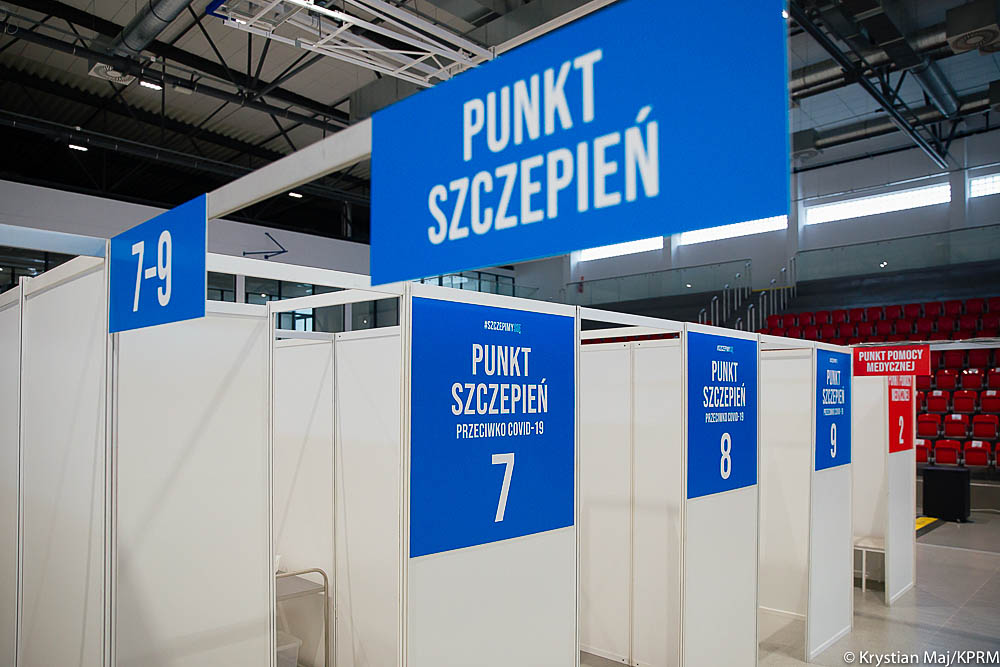After reports emerged of anti-vaccination activists seeking to block slots for coronavirus vaccinations, the government has said that it is looking into the issue but has played down the risk.
The minister in charge of the vaccination programme said that no-shows made up only a small percentage of appointments, and rejected the idea of punishing those who fail to turn up.
The Polish Supreme Medical Council’s Covid expert, Paweł Grzesiowski, had previously called for a tightening of vaccination regulations and intervention from the police. “If reports of deliberate blocking of vaccination slots are confirmed, they should be punished severely, on a par with attempted murder,” he wrote.
Reports surfaced over the weekend that anti-vaccination and conspiracy theory groups on social media had been “mobilising” in recent weeks to encourage followers to register for vaccinations when they opened up for their age groups.
They would then fail to turn up at the allotted time, thereby stopping people who wanted a vaccination from getting one.
“If it is true that anti-vaccination groups are conducting a mass campaign to block appointments for COVID-19 vaccinations, this is an action that harms Polish citizens and the relevant authorities should take an interest,” wrote Bartosz Fiałek, a doctor.
O ile doniesienia o umyślnym blokowaniu slotów na szczepienia potwierdzą się, powinny być surowo ukarane, na równi z usiłowaniem zabójstwa. Konieczne błyskawiczne zmiany przepisów uszczelniające NPS i szybka interwencja @PolskaPolicja @MorawieckiM @a_niedzielski @michaldworczyk https://t.co/245UUkbc7A
— Pawel Grzesiowski (@grzesiowski_p) April 25, 2021
Responding through its #Szczepimysię Twitter account, the official channel for the national vaccination programme, the government information centre said that it is “analysing these threads in various social media [and] using all available tools to counteract this phenomenon.”
At a press conference this morning, Michał Dworczyk, the minister in charge of the vaccination rollout, confirmed that the government is aware of social media reports of the problem. However, he said that they trust most Poles to be responsible.
Dworczyk noted that this month only around 1.5% of people registered for a slot had failed to come to their appointment, and that he did not foresee any need to sanction no-shows.
As of this morning, Poland had administered more than 10.3 million coronavirus vaccinations, including 2.5 million second doses. Registration today opened up to people born in 1974 and 1975, with further year cohorts becoming eligible every day until 9 May.
Deliveries of almost 1.3 million Pfizer/BioNTech vaccines are imminently expected, as well as 67,000 from AstraZeneca and around 100,000 from Johnson & Johnson, reports Interia.
On Saturday, Dworczyk said that although more than a million vaccines fewer than expected would arrive this week, registrations would not be affected. At this morning’s press conference, he added that several hundred new vaccination points had opened, but that they were not able to operate to capacity until more vaccines were delivered.
Main image credit: Krystian Maj/KPRM (under CC BY-NC-ND 2.0)

Ben Koschalka is a translator, lecturer, and senior editor at Notes from Poland. Originally from Britain, he has lived in Kraków since 2005.




















